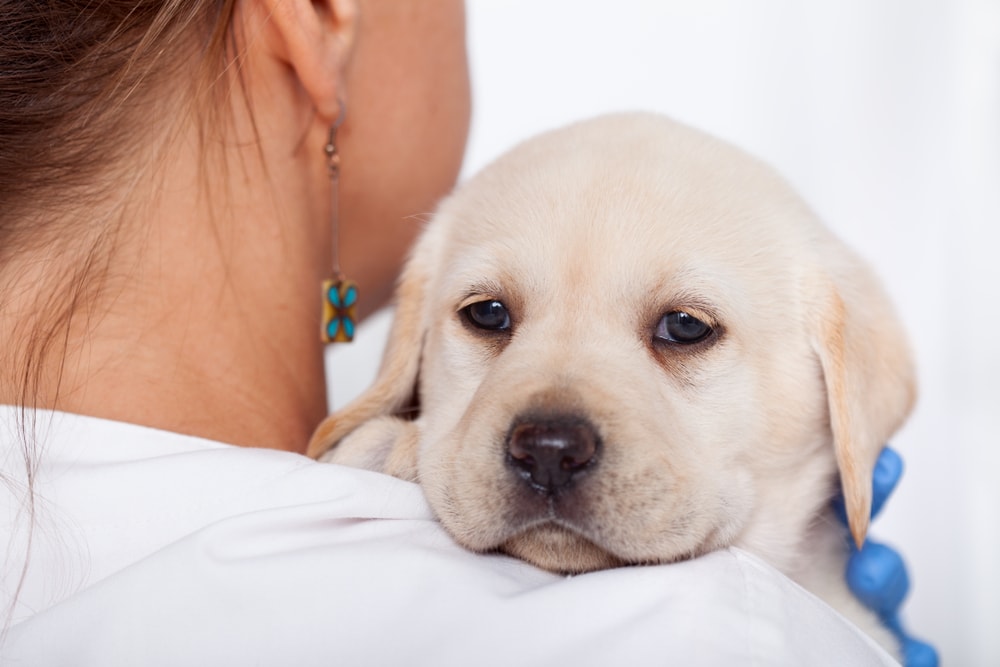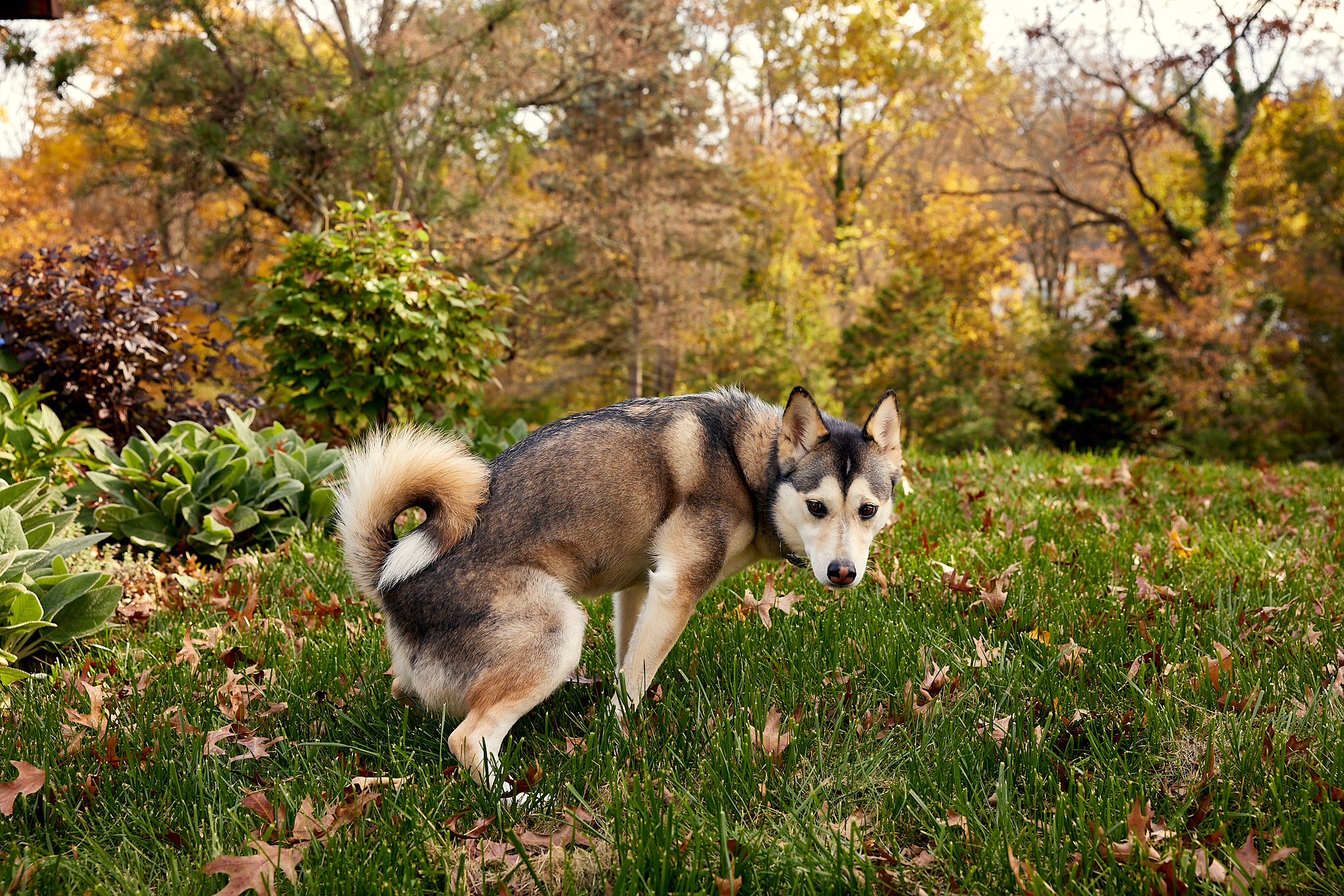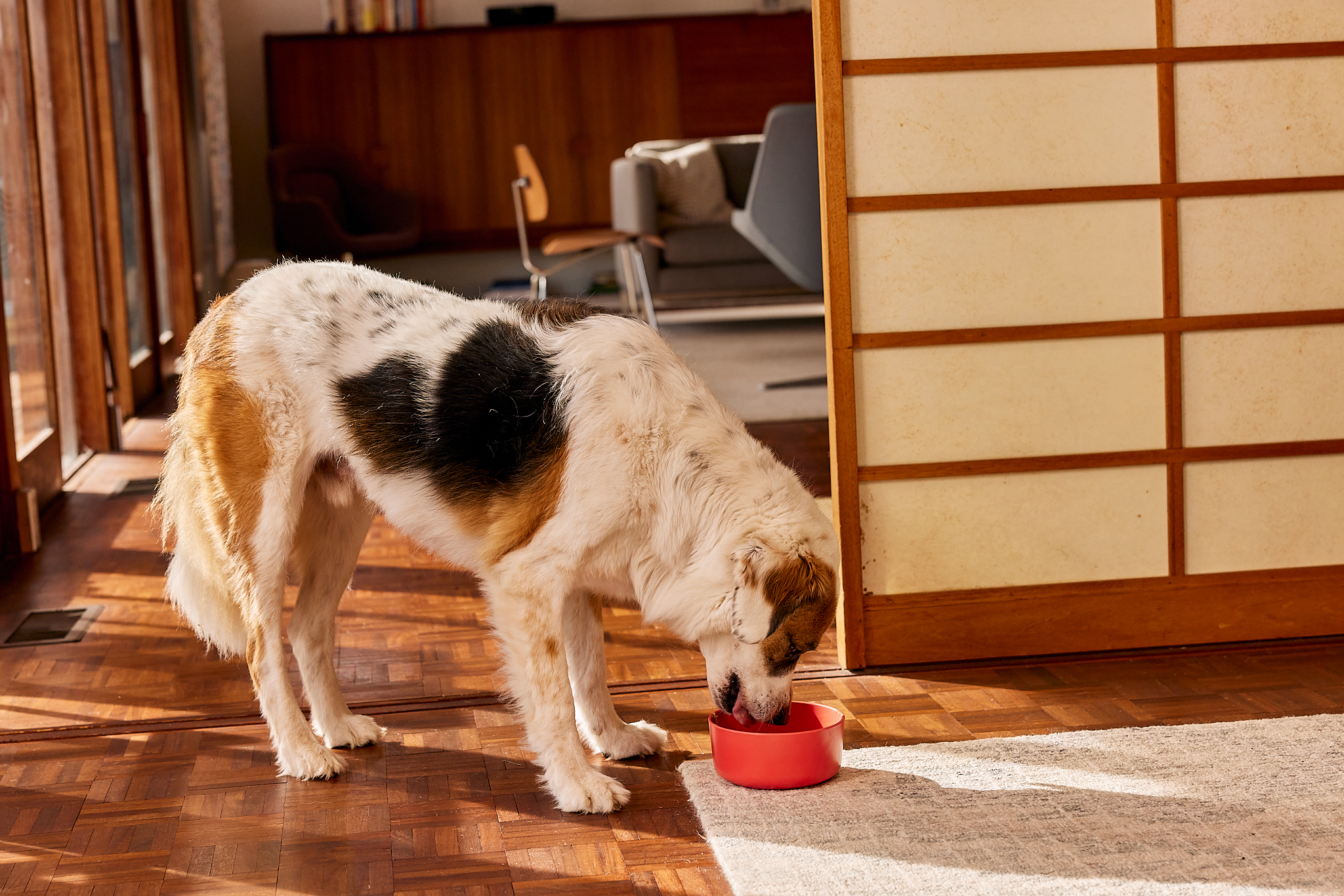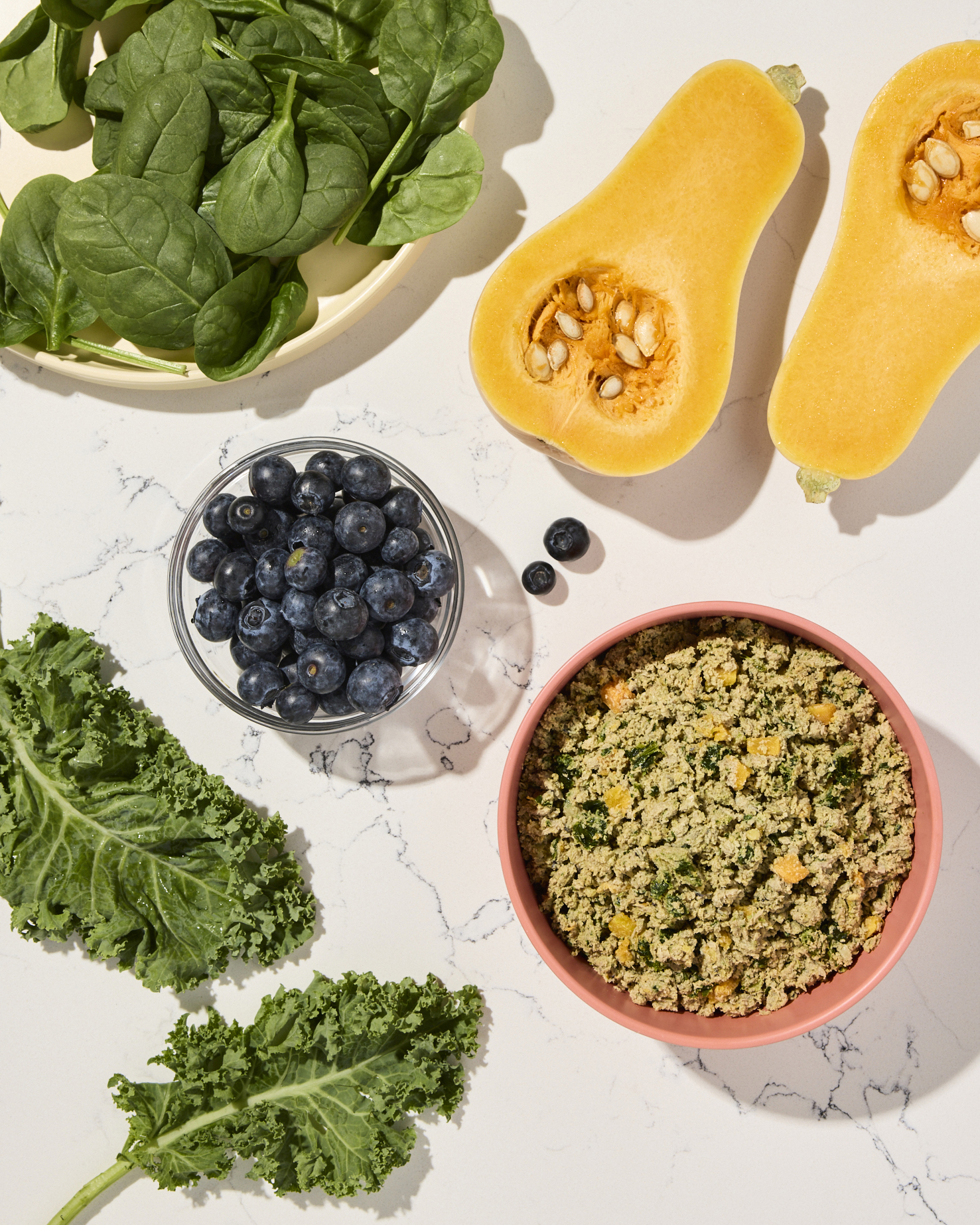Hey Ollie blog readers! We’re offering you an exclusive 60% OFF your starter box! Try now!
Puppy vomiting is stressful—for both you and your little pup. Whether it’s a one-time episode or something more frequent, it’s natural to worry when your dog starts throwing up, especially at such a young age. Puppies are curious, sensitive, and still developing their immune and digestive systems, which makes them more prone to tummy trouble than adult dogs.
So what causes puppy vomiting, and when should you be concerned? In this guide, we’ll walk you through the most common reasons puppies throw up, how to tell if it’s something minor or an emergency, and what steps you can take right now to help your pup feel better.
From diet tips to red-flag symptoms, here’s everything you need to know about vomiting in puppies—plus when to pick up the phone and call your vet.
This article will explain various reasons as to why your little pup may be throwing up and how to address the situation. Luckily, nine times out of ten, there’s no real cause for concern. Before you start to feel anxious about your vomiting puppy, ensure to read this article fully!
Why is My Puppy Throwing Up?
Puppies love to explore the world, smell every scent and eat everything in sight. This curious nature increasing their chances of eating something they shouldn’t compared to fully-trained adult dogs. The most common reason that a puppy would throw up is he’s chewed on a foreign object like a pair of slippers or some mulch, which irritated his GI tract.
Puppies also require less food than fully-grown dogs. If your puppy is overeating this can lead to regurgitation. Here’s how to tell how much to feed your little pup.
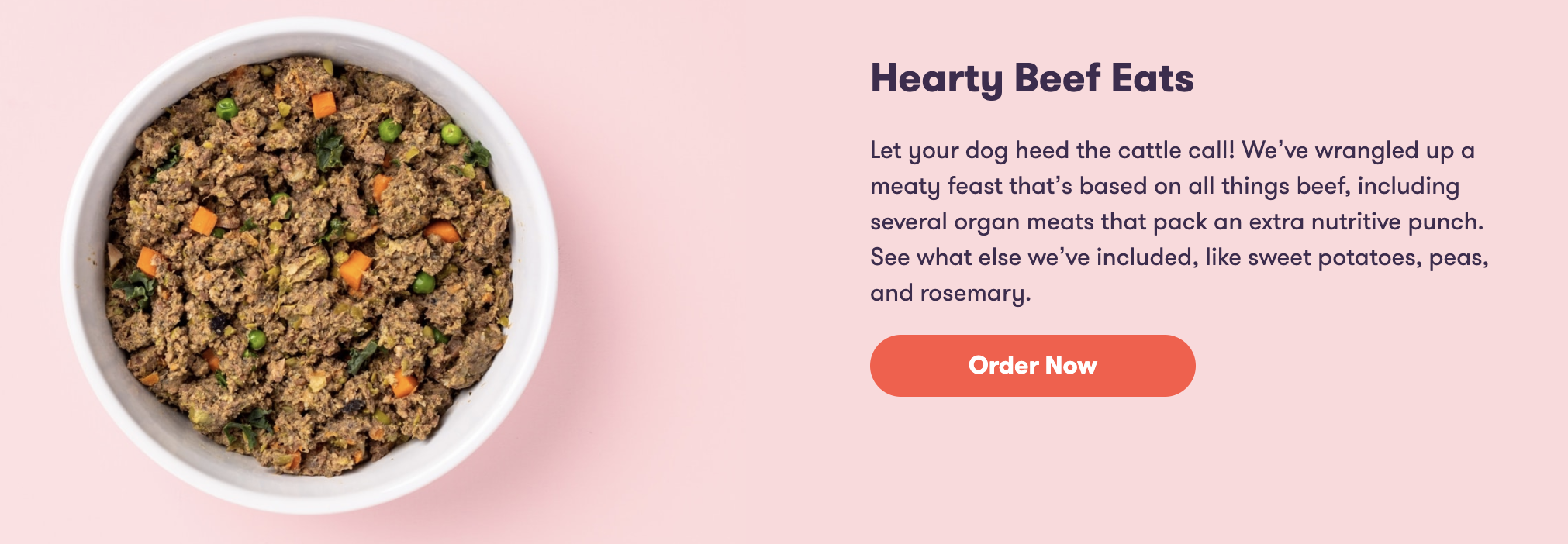
Puppies throw up for a variety of reasons—some harmless, others much more serious. Vomiting is a symptom, not a diagnosis, and it’s your puppy’s body’s way of telling you something isn’t right. To understand what’s going on, it’s important to look at the type of vomit, how often it’s happening, and what your puppy was doing beforehand.
Here are the most common causes of vomiting in puppies, broken down to help you identify what might be affecting your pup.
Why Is My Puppy Throwing Up?
1. Dietary Indiscretion (Ate Something They Shouldn’t Have)
Puppies explore the world with their mouths, and that curiosity often leads to swallowing things they shouldn’t—like trash, grass, toys, or table scraps. This can irritate the stomach or even lead to a blockage if the object can’t pass through.
Watch For: Vomiting after chewing on unknown objects, lack of appetite, straining to poop, or lethargy.
2. Food Intolerance or Sudden Diet Changes
Switching your puppy’s food too quickly or feeding rich treats can upset their sensitive digestive systems. Many puppies also have trouble digesting dairy, fatty foods, or high-sodium snacks.
Watch for: Vomiting shortly after meals, loose stools, or gas.
Expert Tip: Always transition to a new food gradually over 5–7 days.
3. Parasites
Intestinal parasites like roundworms, hookworms, or giardia are common in puppies and can lead to vomiting, diarrhea, and poor weight gain. These parasites are usually picked up from the environment or passed from the mother.
Watch For: Vomiting, bloated belly, visible worms in stool or vomit, and poor appetite.
4. Motion Sickness or Overexcitement
Some puppies vomit during car rides or when they’re overly stimulated. This is usually nothing to worry about and often improves as your puppy matures.
Watch For: Vomiting during or immediately after a car ride, pacing, drooling, or whining.
5. Infections and Illnesses
Serious conditions like parvovirus, distemper, or bacterial infections can cause repeated vomiting and require urgent treatment—especially in unvaccinated puppies.
Watch for: Vomiting paired with diarrhea, blood in stool, fever, lethargy, or rapid dehydration.
Expert Note: If your puppy is very young, not fully vaccinated, and vomiting more than once, call your vet right away.
6. Toxin Ingestion
Puppies may chew on toxic plants, medications, cleaning products, or even human food like grapes or chocolate. These can lead to sudden, severe vomiting and other dangerous symptoms.
Watch for: Vomiting with shaking, drooling, disorientation, seizures, or pale gums.
Expert Recommendation: Always keep toxic items out of reach and call a vet or poison control center if ingestion is suspected.
7. Underlying Medical Conditions
Vomiting may also be linked to underlying issues like:
- Liver disease
- Pancreatitis
- Kidney problems
- Congenital disorders
These are less common in puppies but can still occur.
What Should You Do When Your Puppy Throws Up?
Once your puppy has finished throwing up, ensure their throat is clear and not clogged with food (this can be done by gently feeling at the top of the throat). If you find your puppy struggling for air or short of breath this is a red flag for your puppy’s throat to be blocked. If this is the case, take your puppy to the vet immediately.
Once you are certain your puppy’s airways are clear, show them plenty of affection. If your puppy is throwing up due to stress, this will help calm him down and prevent further vomiting. Puppies dehydrate much faster than adult dogs, so it’s critical to make sure that they have some room temperature water available. Other than water, avoid food until their stomach calms down.
Once a few hours have passed and your puppy is well-hydrated with little sign of vomiting, you may reintroduce food. It is advised to start with bland, easily-digestible food such as rice and boiled chicken. Once your puppy has happily enjoyed a few of these simple meals, you may re-introduce their normal food.
Puppy Keeps Throwing Up? When to Call the Vet
If you notice your puppy shaking, drooling, problems with breathing or blood within their vomit or blood in their stool, then consult a veterinarian immediately as this may be a sign of an underlying problem. Puppies are pretty resilient, but they do often require more attention and care. If you think that your puppy might be in distress or that he may be suffering from dehydration because of the vomiting, it’s time to ask a professional. Remember, if you are unsure, it is always advised to contact a vet and play it safe. After all, our pets can’t talk and tell us what’s wrong!
The Ollie blog is devoted to helping pet parents lead healthier lives with their pups. If you want to learn more about our fresh, human-grade food, check out MyOllie.com.
Tagged As:

The nutrition your dog needs,
the food they want.

Enjoying our articles? Subscribe our Newsletters and get new articles directly to your inbox
You might also like
3 July 2025
5 MINS READ
How Fresh Food Can Help Your Dog Have Perfect Poops
As a pup parent, you’re likely very familiar with your dog’s bathroom habits. While it may not be the most glamorous part of taking care of your pup, a dog’s stool can be one of the most dir…
by Ollie Pets
4 June 2025
5 MINS READ
How Can Fresh Dog Food Help with Weight Management?
Maintaining a healthy weight is one of the most important aspects of your dog’s overall health and longevity. Being overweight or underweight can result in health complications and conditions that…
23 May 2025
5 MINS READ
Why Fresh Dog Food Makes Happier, Healthier Dogs That Live Longer
Every pup parent wants their dog to live a long, happy life, and the path to a healthier, happier dog starts with what’s in their bowl. Recent research and expert insights reveal that fresh dog …
by Ollie Pets
